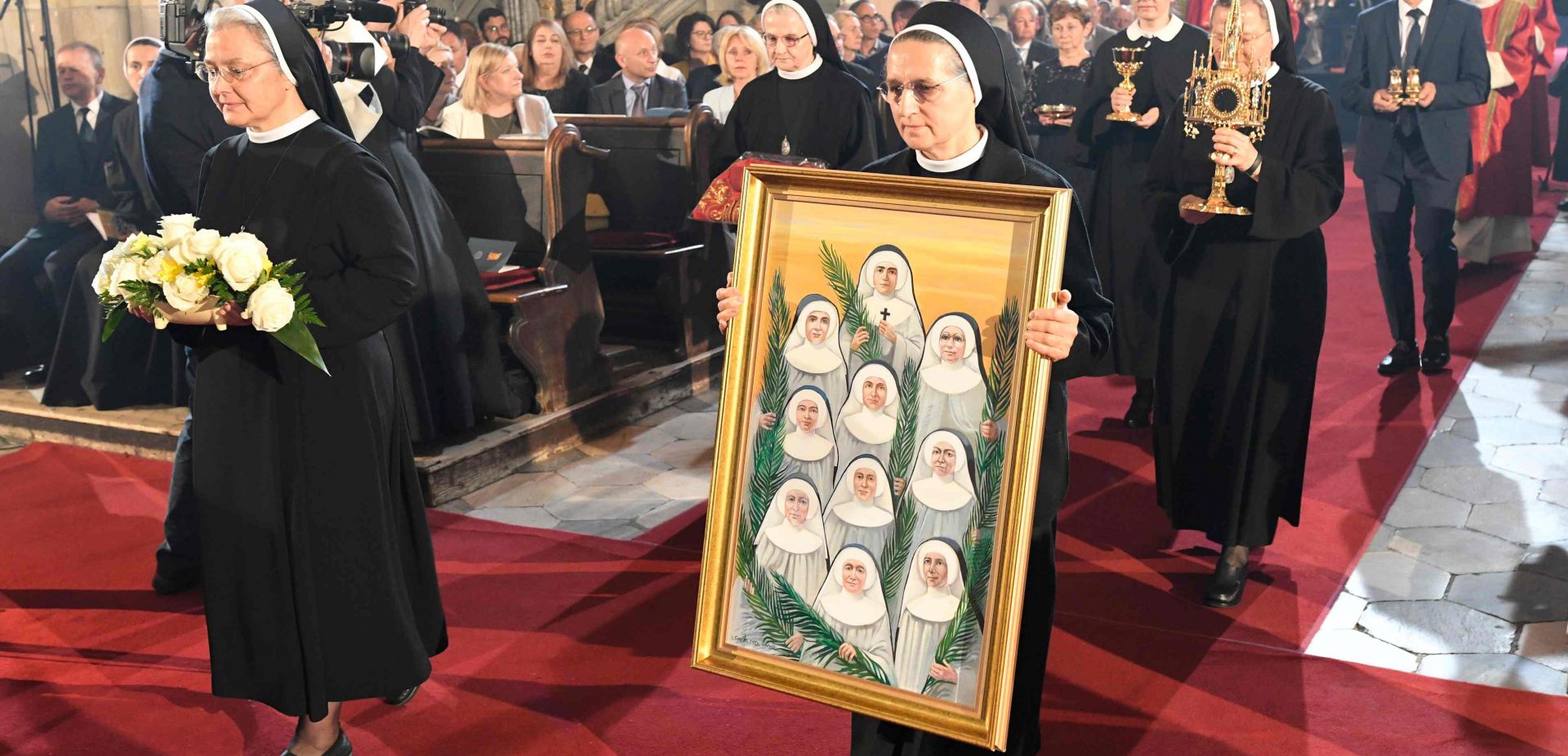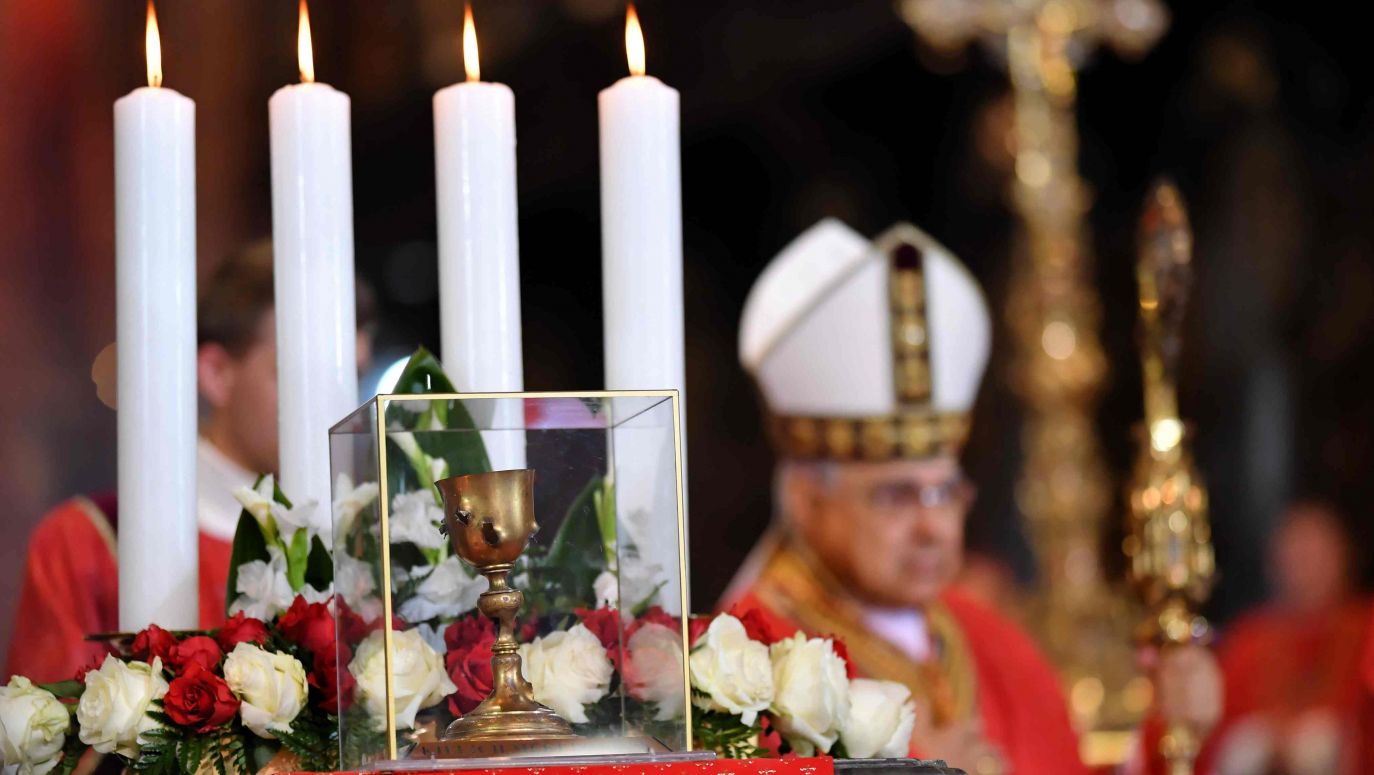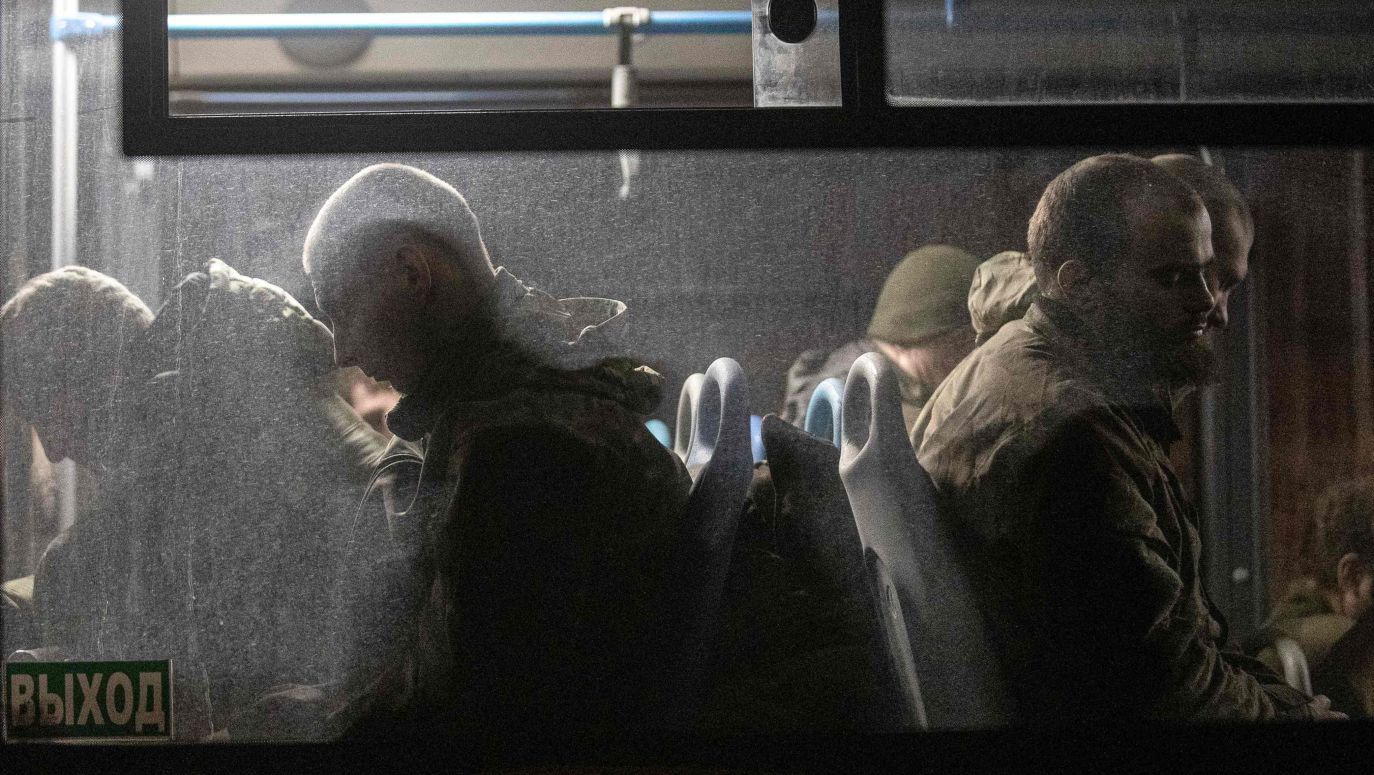"In the combat zone and in the occupied territories, the people are experiencing severe humiliation and mistreatment, they are experiencing tragic moments about which we probably do not know everything, but what is reaching us should move every Christian conscience," Archbishop Svyatoslav Shevchuk said in his daily message on Saturday, June 11. Archbishop Shevchuk, head of the Ukrainian Greek Catholics, addresses the nation every day of the war - and this time he stressed that "these events cry out to the whole world for the necessity of saving these people, for an immediate halt to the aggressor and this unjust war". The cry to the whole world goes unanswered.
On the same day, 11 June, in Wrocław, there is the beatification of ten Elizabethan sisters, brutally, even bestially, murdered by Soviet soldiers in 1945, right after they entered Lower Silesia, which for them was simply "Giermania". And the "Giermans" had to be dealt with, so the Soviet soldiers did and used as much as they could in their Soviet and soldatian way.
For example, Sister Rosaria Schilling, aged 36, murdered on 23 February 1945 in Nowogrodziec near Bolesławiec, was the victim of hours of mass rape by thirty soldiers; in an agonal state, with a bloody pulp instead of her head, she was shot while marching. Sister Melusja Rybka, 39, was murdered on 24 March 1945 in the nunnery house in Nysa when she tried to protect a girl who was hiding at the nuns' house from being raped. There were thousands of nuns and girls and women who were raped and murdered - and it was not just German women. Young Polish women returning from German concentration or prisoner-of-war camps were also terrified of Soviet troopers - and they knew why.
Agata Puścikowska, a columnist for the "Gość Niedzielny" weekly and the author of several books about the heroism of nuns during the war, is in the process of preparing her next publication about the crimes committed by Soviet forces against nuns. The Germans had been murdering priests and nuns for more than five years of the occupation; when the Soviets entered, they added to this the shocking martyrdom of nuns.
 SIGN UP TO OUR PAGE
SIGN UP TO OUR PAGE

To these two names of nuns from Lower Silesia I will add eight more, so that at least in this way they will become part of our memory: Sister M. Edelburgis Kubitzki, 40, murdered on 20 February 1945 in Żary, when the sisters, expelled from the convent, were driven to an inn and there abused by sex-crazed, drunken Red Army men; Adela Schramm, 59, murdered on 25 February 1945 in Godzieszów near Lubań after a long struggle to defend her dignity; Sister M. Sabina Thienel, 35, murdered on 1 March 1945 in Lubań; Sister M. Adelheidis Töpfer, 57, murdered on 24 March 1945 in Nysa. They were nurses and caretakers of old people in nursing homes run by the orders.
"The fact that the Holy See and the Holy Father Francis want to show humanity the faces of these ten sisters murdered by Russian soldiers during World War II at precisely this moment in history seems prophetic, because in these faces we can see the faces of women and children - victims of the aggression of Russian soldiers. During the Beatification Mass, there is a moment when the image of the new Blesseds is unveiled. I strongly encourage you to see in the faces of these sisters the faces of people killed today across our eastern border," said Józef Kupny, the Metropolitan Archbishop of Wrocław, quoted by Catholic News Agency (KAI).
"When Pope Francis made the decision to elevate to the altars ten Elizabethan sisters, martyrs of World War II, it seemed that we could only talk about violence, aggression, killing of innocent people in the past tense. We recalled the life stories of Sister Maria Paschalis and her companions with the hope that the events they witnessed would never return. At that time no one expected that the experiences of these ten Elizabethan sisters would become the experience of our brothers and sisters living in Ukraine", he emphasized.

 SIGN UP TO OUR PAGE
SIGN UP TO OUR PAGE








